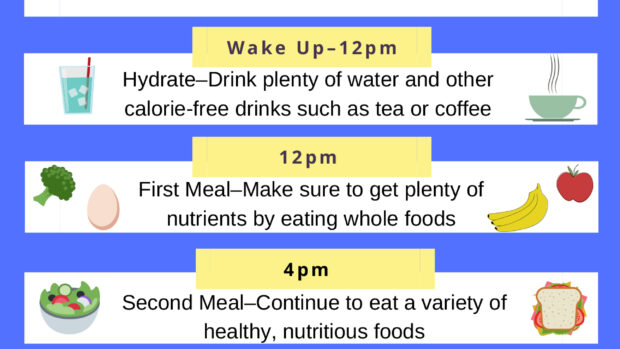Discover the benefits, risks, and strategies of intermittent fasting schedules, including weight loss tips, autophagy for anti-aging, essential supplements, and safety guidelines.
Estimated reading time: 10 minutes
Key Takeaways
- Intermittent fasting offers various schedules to fit different lifestyles.
- IF can promote weight loss, enhance metabolic health, and support anti-aging processes.
- Proper supplementation and risk mitigation strategies are essential for safe fasting.
- Consult healthcare providers before starting any fasting regimen.
Table of Contents
Understanding Intermittent Fasting Schedules
Intermittent fasting offers several approaches to suit different lifestyles. Here are the most popular schedules:
16/8 Method
- 16 hours of fasting
- 8-hour eating window
- Example: Skip breakfast, eat between 12 PM and 8 PM
- Most popular and beginner-friendly approach
This method is often the easiest to maintain as it aligns with natural sleep patterns and regular daily routines.
Hopkins Medicine on Intermittent Fasting
5:2 Diet
- Normal eating for 5 days
- Restricted calories (500-600) for 2 non-consecutive days
- Flexible scheduling around social events
- Good for those who prefer not to fast daily
The 5:2 approach allows more freedom while still providing fasting benefits.
Mass General Brigham on Pros and Cons of Intermittent Fasting
Eat-Stop-Eat
- Full 24-hour fast once or twice weekly
- Zero calories during fasting periods
- Normal eating on non-fasting days
- More challenging but potentially more powerful benefits
This method requires more dedication but can be effective for experienced fasters.
Precision Nutrition on Eat-Stop-Eat
Alternate-Day Fasting
- Alternate between fasting days (0-500 calories) and normal eating days
- More aggressive approach
- May be harder to maintain long-term
- Often used for shorter periods
This method can produce rapid results but requires significant commitment.
ZOE on Alternate-Day Fasting
Warrior Diet
- Small snacks during day
- One large meal at night (4-hour window)
- Based on ancient warrior eating patterns
- Requires careful nutritional planning
This approach mimics historical eating patterns but may not suit modern lifestyles.
Precision Nutrition on Warrior Diet
Intermittent Fasting for Weight Loss
IF promotes weight loss through several mechanisms:
- Reduced insulin levels
- Enhanced fat burning
- Natural calorie reduction
- Improved metabolic flexibility
Studies show IF can be as effective as traditional calorie-restricted diets, with added benefits:
- Preserved muscle mass
- Reduced visceral fat
- Improved insulin sensitivity
- Better long-term adherence
Harvard Health on IF and Weight Loss
Autophagy and Anti-Aging Benefits
One of IF’s most exciting benefits is its ability to trigger autophagy – your body’s cellular cleanup process.
Key Anti-Aging Effects:
- Removal of damaged cells
- Generation of new healthy cells
- Reduced inflammation
- Lower oxidative stress
- Improved hormone regulation
- Enhanced longevity
Best NMN Supplements for Anti-Aging
Research suggests these processes may help:
- Prevent neurodegenerative diseases
- Reduce heart disease risk
- Slow aging processes
- Enhance longevity
Healthline on IF Health Benefits
Best NMN Supplements for Anti-Aging
Fasting Supplements
While fasting, certain supplements can support your journey:
Essential Supplements:
- Electrolytes (sodium, potassium, magnesium)
- Prevent cramps
- Maintain energy
- Support hydration
- Multivitamins
- Fill nutrient gaps
- Support overall health
- Caffeine (black coffee/tea)
- Boost energy
- Enhance focus
- Won’t break fast
- Zero-calorie electrolyte drinks
- Maintain mineral balance
- Support hydration
Precision Nutrition on Fasting Supplements
Risks of Prolonged Fasting
While IF offers many benefits, it’s important to understand potential risks:
Major Concerns:
- Nutrient Deficiencies
- Vitamin shortages
- Mineral imbalances
- Protein inadequacy
- Physical Issues
- Muscle loss
- Metabolic slowdown
- Fatigue
- Dehydration
- Mental Health Impact
- Mood swings
- Irritability
- Difficulty concentrating
Who Should Avoid IF:
- Pregnant women
- Breastfeeding mothers
- Diabetics
- Those with eating disorders
- People with certain chronic conditions
Hopkins Medicine on Risks of IF
Risk Mitigation:
- Start gradually
- Listen to your body
- Maintain proper hydration
- Eat nutrient-dense foods during eating windows
- Monitor health markers
- Consult healthcare providers
Conclusion
Intermittent fasting schedules offer flexible approaches to improve health and achieve weight loss goals. Whether you choose the popular 16/8 method or a more advanced approach like alternate-day fasting, success depends on finding a sustainable schedule that fits your lifestyle.
Remember:
- Start with easier schedules
- Progress gradually
- Focus on nutrient-dense foods
- Stay hydrated
- Listen to your body
- Consult healthcare providers before starting
- Explore complementary anti-aging strategies
Best NMN Supplements for Anti-Aging
Additional Resources
Recommended Apps:
- Zero
- Life Fasting Tracker
- Fastic
- Simple
Suggested Reading:
- “The Obesity Code” by Dr. Jason Fung
- “Fast. Feast. Repeat.” by Gin Stephens
Have you tried intermittent fasting? Share your experiences in the comments below!
FAQ
What is the best intermittent fasting schedule for beginners?
The 16/8 Method is often recommended for beginners due to its simplicity and alignment with natural eating patterns.
Can intermittent fasting help with weight loss?
Yes, studies have shown that intermittent fasting can be as effective as traditional calorie-restricted diets for weight loss, with additional benefits like improved insulin sensitivity.
Are there any risks associated with prolonged fasting?
Prolonged fasting may lead to nutrient deficiencies, muscle loss, metabolic slowdown, and mental health impacts. It’s important to consult healthcare providers before starting any fasting regimen.
Which supplements are recommended during fasting?
Essential supplements include electrolytes, multivitamins, caffeine (from black coffee or tea), and zero-calorie electrolyte drinks to maintain energy and hydration.
Who should avoid intermittent fasting?
Individuals who are pregnant, breastfeeding, have diabetes, suffer from eating disorders, or have certain chronic conditions should avoid intermittent fasting or consult a healthcare provider before starting.
“`
